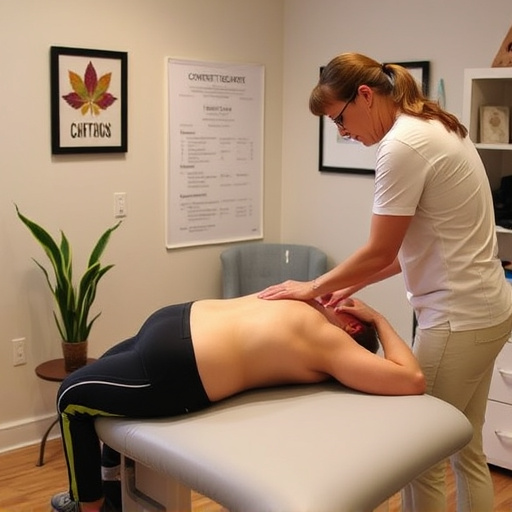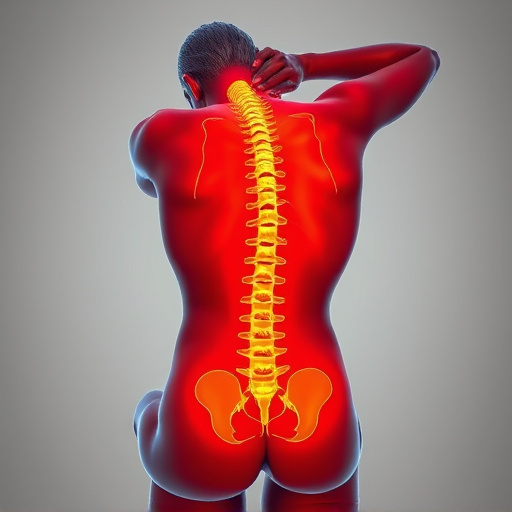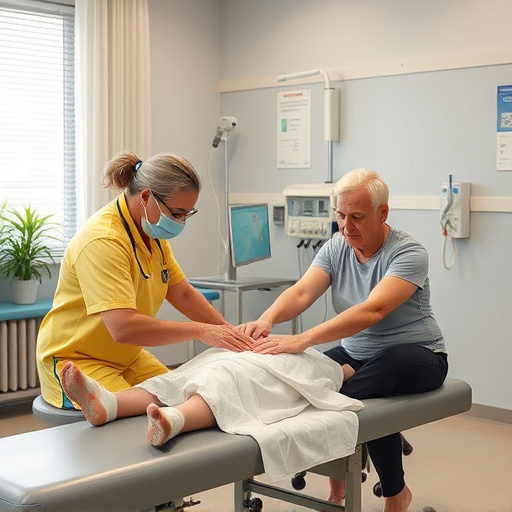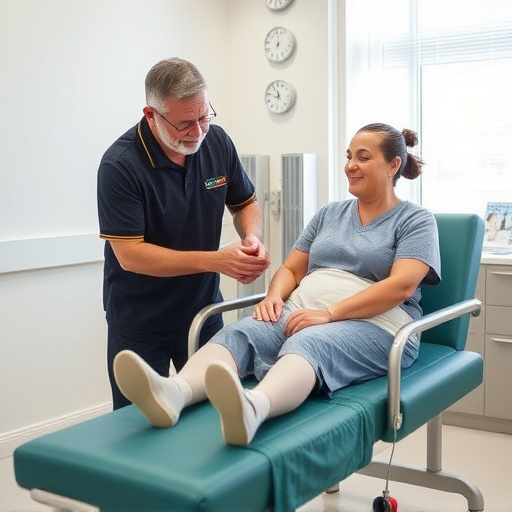Workers compensation doctors are specialists who manage and treat workplace injuries, providing initial assessments, diagnoses, and evidence-based treatments while adhering to legal guidelines. They collaborate with employers, insurance providers, and rehabilitation experts to develop holistic plans for pain relief and chronic condition management. These doctors play a crucial role in facilitating employees' safe return to work and addressing the physical, emotional, and psychological aspects of auto accident recovery, often linked to workers compensation claims.
When an injury or illness arises from work, understanding the differences between a workers compensation doctor and your personal physician is crucial. This guide breaks down these distinctions, focusing on the unique roles and expertise of each.
We explore how workers compensation doctors, specialized in occupational health, navigate legal requirements and provide treatment within a specific framework. In contrast, personal physicians offer general care, prioritizing patient wellness without the same legal constraints.
- Understanding Workers Compensation Doctors' Role
- Personal Physicians: Patient Care and Focus
- Key Differences: Expertise and Legal Requirements
Understanding Workers Compensation Doctors' Role

Workers compensation doctors play a critical role in the treatment and management of workplace injuries. Their primary responsibility is to assess, diagnose, and provide medical care for conditions arising from on-the-job accidents or occupational hazards. When an employee experiences an injury or develops a work-related illness, this specialist is often the first point of contact. They conduct thorough examinations, order relevant tests, and offer evidence-based treatments aimed at minimizing pain and facilitating a patient’s return to work.
These doctors are experts in occupational medicine, ensuring that the treatment aligns with legal requirements and workers’ compensation guidelines. Their role involves collaborating closely with employers, insurance providers, and rehabilitation specialists to create comprehensive rehabilitation plans. By focusing on neck pain relief, joint pain relief, and chronic pain management, they strive to improve employees’ overall well-being and help them recover more effectively from work-related injuries.
Personal Physicians: Patient Care and Focus

Personal physicians play a pivotal role in patient care, focusing on comprehensive health management and preventive medicine. They are often the first point of contact for individuals seeking medical assistance, providing ongoing care and treatment for various conditions. These doctors have a broad understanding of general healthcare, enabling them to address a wide range of issues, from routine check-ups and disease prevention to managing chronic conditions. Their patient-centric approach emphasizes individual needs, promoting wellness and quality of life.
In the context of auto accident recovery and post-injury care, personal physicians help patients navigate their journey towards mobility improvement. They offer continuous support, monitoring progress, and adjusting treatment plans as needed. This personalized care ensures that patients receive holistic attention, addressing not just physical injuries but also emotional and psychological well-being, which is essential for a successful and lasting recovery.
Key Differences: Expertise and Legal Requirements

When it comes to treating work-related injuries, a workers compensation doctor plays a crucial role in the process. Unlike a personal physician who focuses on general health and wellness, these specialists are trained to handle injuries and illnesses stemming from occupational hazards. Their expertise lies in diagnosing and managing conditions that arise on the job, such as lower back pain or neck pain treatment. They must adhere to strict legal requirements set by workers compensation boards, ensuring that treatments are reasonable, necessary, and aligned with established guidelines for efficient claims management.
While a personal physician might offer chronic pain management advice as part of their care, workers comp doctors have a more specific mandate. Their priority is to facilitate the worker’s return to work as soon as safely possible, which can involve different treatment approaches compared to those used by primary care providers. This specialization ensures that the needs of workers with job-related injuries are met efficiently and effectively within the legal framework governing workers compensation.
When it comes to healthcare for work-related injuries, a clear distinction exists between a workers compensation doctor and a personal physician. The former specializes in treating on-the-job injuries, adhering to specific legal requirements, and providing expert testimony, while the latter offers comprehensive patient care with a broader focus on long-term health management. Understanding these differences is crucial for employees and employers alike, ensuring that the appropriate medical support is accessed during the recovery process.














